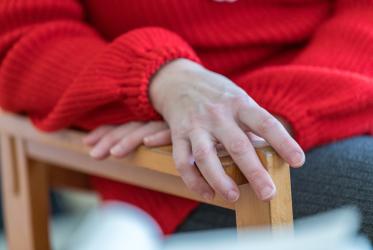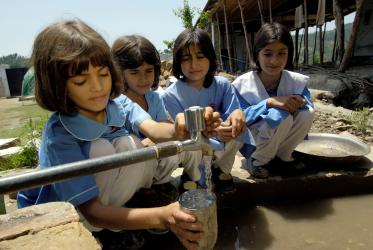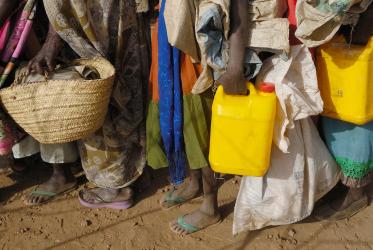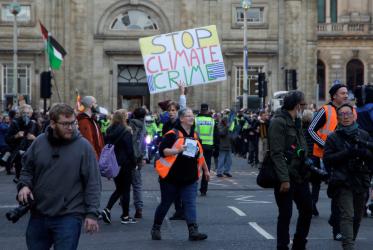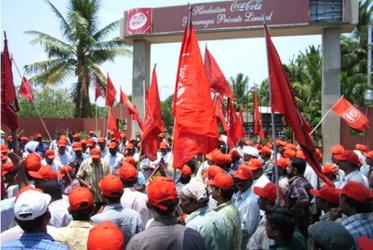Displaying 1 - 20 of 72
“Faith Community is a Blue Community” - WCC official side event at the UN Water Conference
22 March 2023
UN Church Center, 777 United Nations Plaza, New York and online via Zoom
Seven Weeks for Water 2023 takes global approach
22 February 2023
Water and sanitation prominent on COP27 agenda
28 November 2022
WCC Eco School for North America postponed until 2023
14 November 2022
2022 Social Forum: Water for human rights and sustainable development
03 - 04 November 2022
Palais des Nations in Geneva, Switzerland
Groundwater is “a political question”
27 April 2022
Seven Weeks for Water campaign pre-launched with prayer service
28 February 2022
Climate crisis fuels existing water injustice
27 October 2021

